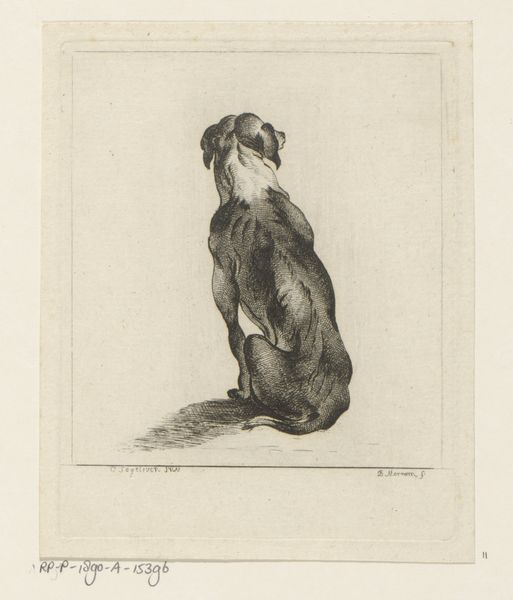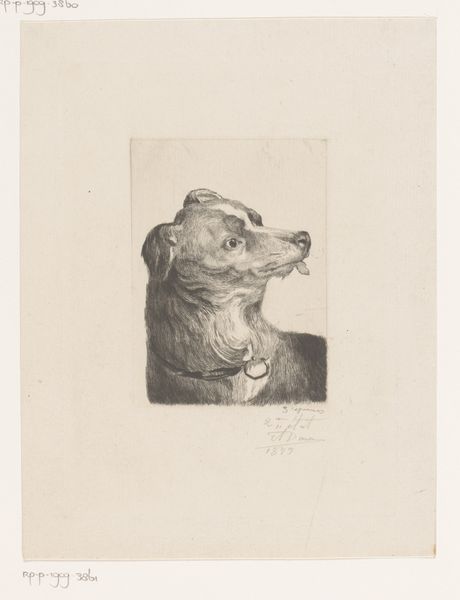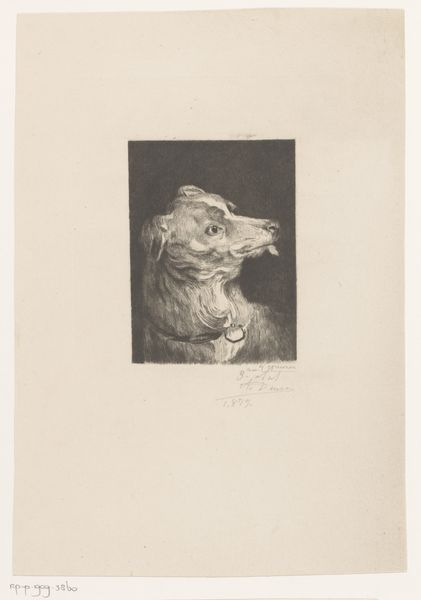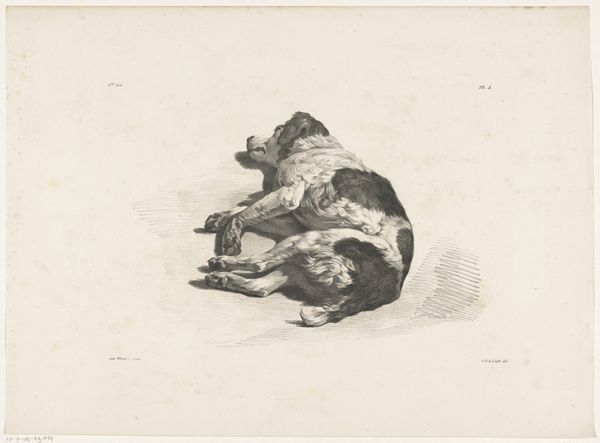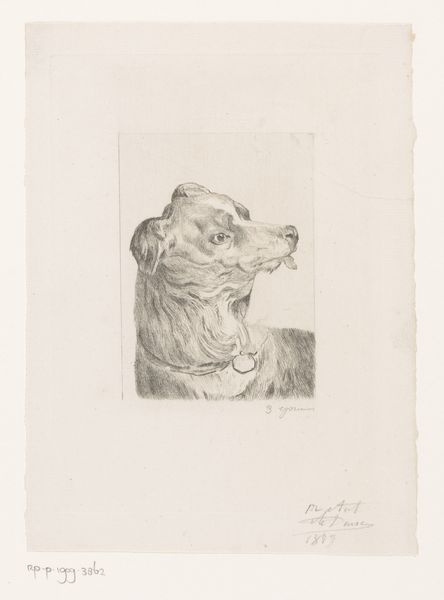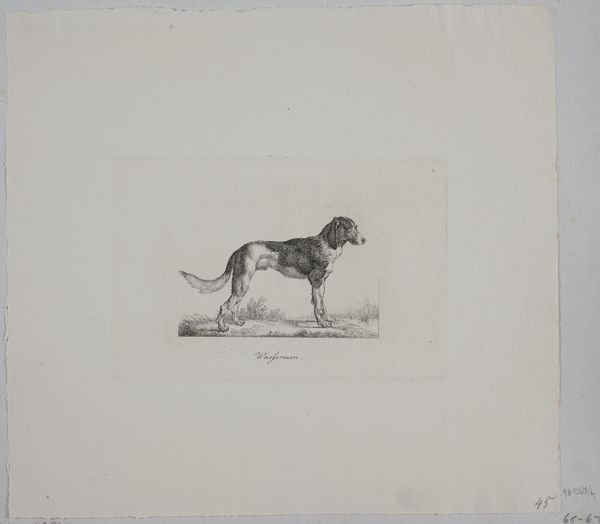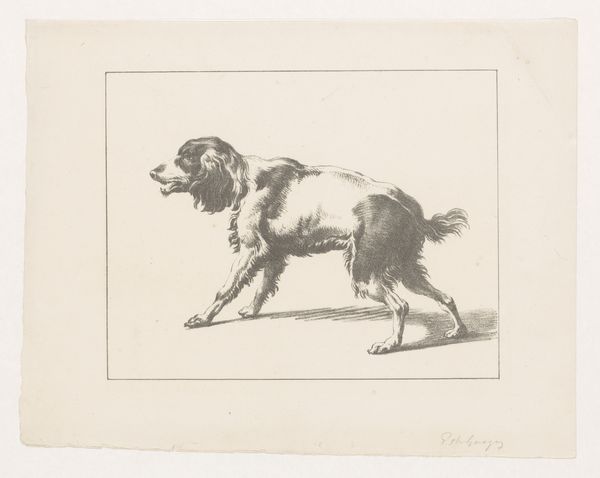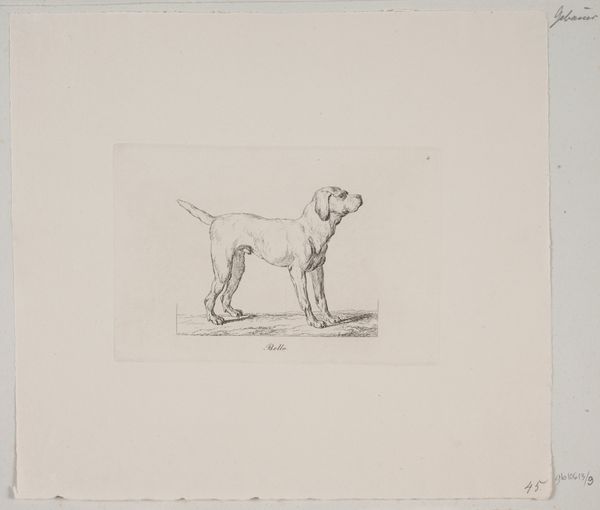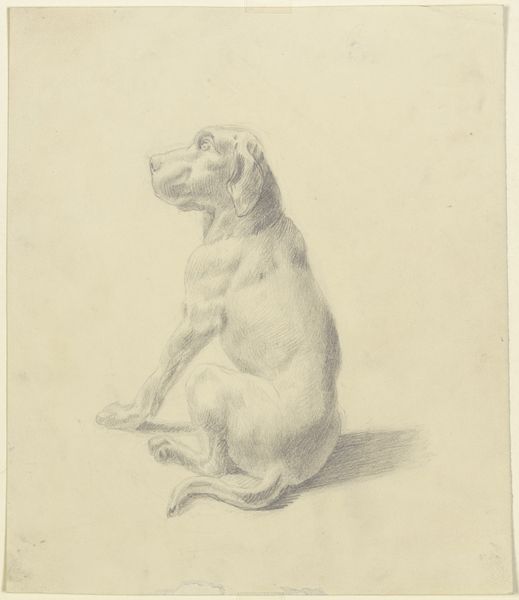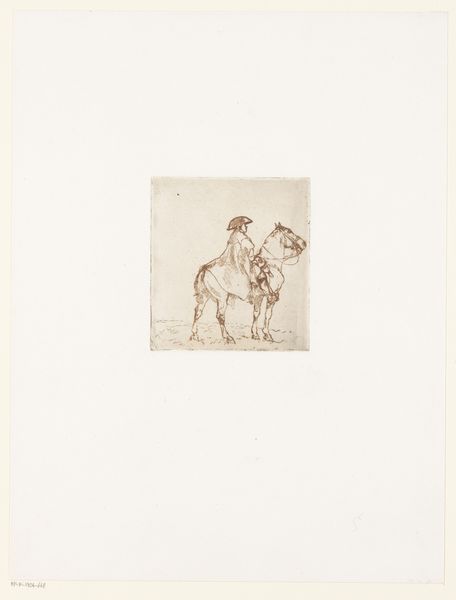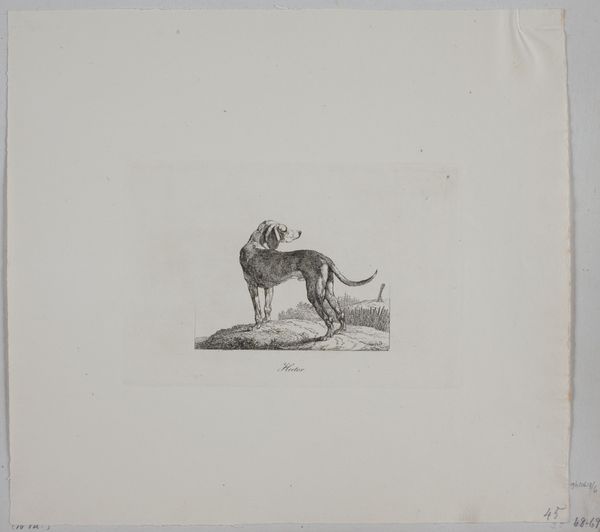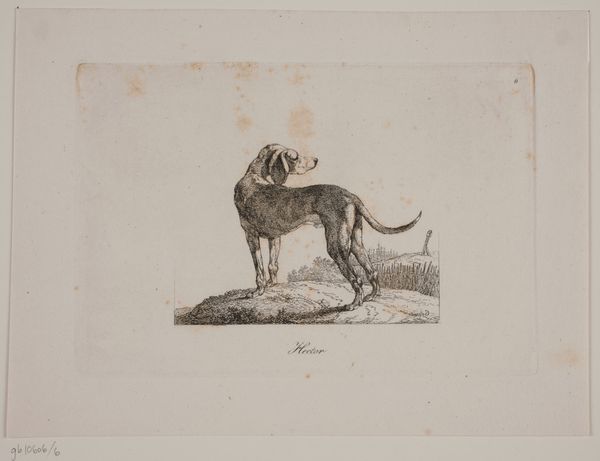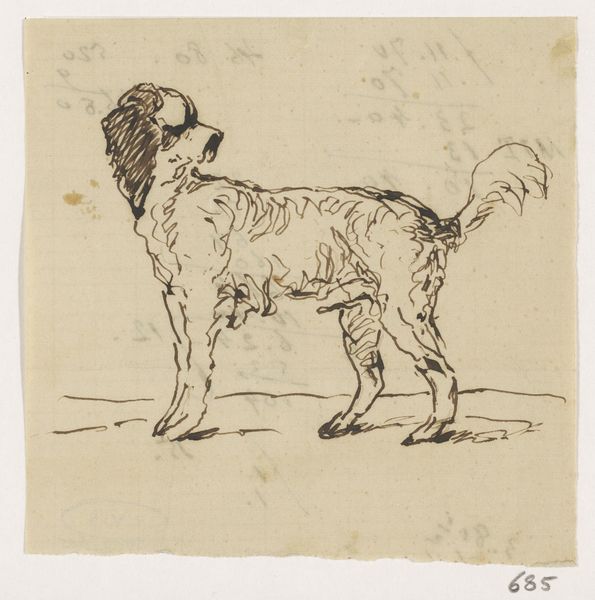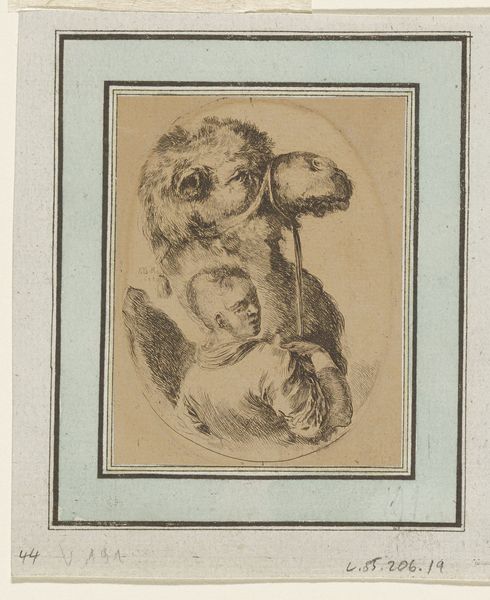
print, etching
#
portrait
#
animal
# print
#
etching
#
dog
#
realism
Dimensions: height 133 mm, width 105 mm
Copyright: Rijks Museum: Open Domain
Editor: Here we have "Zittende hond op de rug gezien," or "Sitting Dog Seen from the Back," an etching dating from sometime between 1700 and 1800 by D. Merrem. It's strikingly simple, almost melancholic, the way the dog is positioned. What strikes you about this piece? Curator: What I find compelling is how the artist chooses to portray the dog from the back. It’s a conscious decision that moves away from traditional portraiture, particularly during that era. Why show the animal’s back, obscuring its face, its assumed emotions? Editor: That's interesting. It makes the dog almost anonymous, doesn't it? Curator: Exactly! Consider how animals, and especially dogs, were being represented during this period. They often symbolized loyalty, status, or even served as allegorical figures. By denying us the dog's face, Merrem challenges those conventions. I think this could be a commentary on social hierarchies— who gets to be seen, whose story gets told? The print avoids romanticizing the dog, making it more of a social object and stripping it from it’s anthropomorphic associations. Editor: So, it's not just a dog portrait, but perhaps a subtle critique of something larger? Curator: Precisely. The etching could be subtly questioning established power structures and visual representation itself, asking us to reconsider what we value seeing. Also the scale, the fact that it is small forces you to be intimate with this common, almost unseen animal, suggesting there is always value and something worth investigating beyond face value. Editor: I hadn’t considered it that way at all. I was just focused on the dog looking a little sad, but you've given me a lot more to think about. Curator: And that's the power of art, isn’t it? It reflects ourselves as well.
Comments
No comments
Be the first to comment and join the conversation on the ultimate creative platform.
